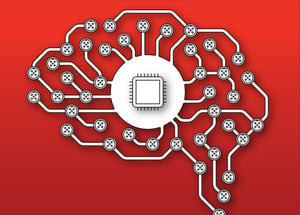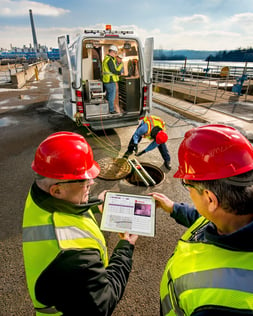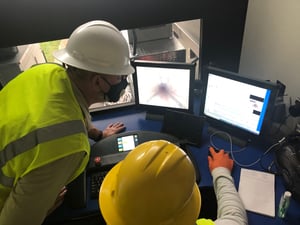The wastewater industry is changing. New technologies are delivering more data than ever before, and inspection software is becoming increasingly effective in managing, analyzing and storing data.
Whether you’re a contractor out in the field or an essential services provider with a local municipality, 2021 is expected to see a fast-paced, highly-efficient shift in sewer inspection workflows. After a year of uncertainty, it pays to be prepared for anything in the new year.
-
1. Greater Use of Artificial Intelligence in Wastewater Inspection

It’s a common misconception that artificial intelligence, or AI, will soon replace human workers in the sewer industry. In reality, AI will actually support operators in gathering better inspection data more efficiently. Sewer inspection and defect coding is an imperfect science, but AI has the potential to bring greater speed, consistency and accuracy to observations. Machine learning-enabled AI can shoulder routine tasks, freeing up operators to focus on crawlers, cameras and other equipment operations. At the same time, AI image recognition can process visual data, pinpoint at-risk areas, determine defect types and sizes, and help inspection teams make informed decisions.
-
2. A Decrease in Municipal Budgets
Municipal budgets have been under strain for the majority of 2020, and even with a COVID-19 vaccine on the horizon, officials are preparing for the worst in 2021. Business and school closures have led to "...a record decline in revenue from permitting fees, licensing fees, parking revenue, and hotel occupancy revenue," according to the New Jersey State League of Municipalities.
Other uncertainties continue to circulate regarding future taxes, income loss and declining returns, meaning the fight for funding will be fierce even among departments deemed “essential.” Wastewater system operators will have to find ways to do more with less, whether that means finding low-cost solutions or taking on fewer projects altogether.

-
3. An Increasing Reliance on Contractors for Municipal Sewer Inspection Work
Though municipal budgets may be under threat, communities across the globe still need to provide essential services. As a result, many in the wastewater industry are expected to turn to contractors to complete that work. Contractors should be ready for an influx of projects of various types and sizes, meeting a new demand for versatility among inspection teams. In turn, contractors may have to rely more heavily on renting and leasing the equipment they need so they can pick up a wider range of projects.
4. Rising Expectations for HD Inspection Footage
When it comes to reporting defects, deliverables need to be detailed, exhaustive and accurate. Operators rely on high-quality video to identify trouble areas during inspections, and expectations for resolution quality are rising, whether the footage is streamed live on a tablet or played back from a browser. This could require investments from both end users and camera manufacturers in brighter LED lights, longer zooms, faster frame rates and HD technology, as these assets support the intake of high quality data.
Additionally, current and newly developed AI technologies benefit from HD inspection footage, so the spread of AI will trigger greater interest in higher quality imaging solutions. Image resolution is determined by the quantity of pixels on a screen, and image recognition tools rely on a high volume of pixels in order to “see” clearly.
So, the higher the resolution of inspection footage, the more pixels the footage has, and the more accurate and efficient AI will be at recognizing and cataloging the plethora of defects that operators encounter in the field.
-
5. Growing Reliance on Remote Collaboration
This year has been marked by a tremendous shift toward remote work across all industries. This has significantly changed the nature of communication and collaboration among professional teams worldwide.
In the wastewater world, cloud-based technologies are proving invaluable, allowing field operators and office personnel to share project files and other deliverables instantly without inundating in-house servers. Furthermore, cloud collaboration enables inspection teams to access data from anywhere, whether on a laptop, tablet or smartphone.
To make this remote collaboration and communication feasible for the long term, 2021 will see the expansion of 5G across the United States. In an article for Forbes, Bernard Marr states that “...4G led to the growth of streaming video and music platforms as bandwidths increased, and 5G, likewise, will open more doors in terms of what is possible.” With 5G, complex computing tasks will not only benefit from increased speed but also from increased accessibility. Mobile service issues will be a thing of the past, giving rural inspection teams the ability to communicate, collaborate, send reports and share data, all from the work site.
As AI continues to develop and the uncertainties of 2020 give way to advances in remote collaboration and inspection technology, there is a lot to look forward to in the new year. The wastewater industry is changing, and inspection teams around the world are stepping up to meet new challenges using innovative inspection and asset management solutions. How is your team preparing?
WinCan empowers wastewater operators and contractors to prepare for the future with cloud-base services, budgeting tools, asset management integrations, GIS compatibility and AI capabilities. Schedule a free demo with our experts to learn about these and more:






